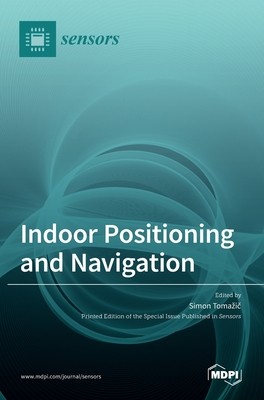
- We will send in 10–14 business days.
- Publisher: MDPI AG
- ISBN-10: 3036519130
- ISBN-13: 9783036519135
- Format: 17 x 24.4 x 3 cm, hardcover
- Language: English
- SAVE -10% with code: EXTRA
Indoor Positioning and Navigation (e-book) (used book) | bookbook.eu
Reviews
Description
In recent years, rapid development in robotics, mobile, and communication technologies has encouraged many studies in the field of localization and navigation in indoor environments. An accurate localization system that can operate in an indoor environment has considerable practical value, because it can be built into autonomous mobile systems or a personal navigation system on a smartphone for guiding people through airports, shopping malls, museums and other public institutions, etc. Such a system would be particularly useful for blind people. Modern smartphones are equipped with numerous sensors (such as inertial sensors, cameras, and barometers) and communication modules (such as WiFi, Bluetooth, NFC, LTE/5G, and UWB capabilities), which enable the implementation of various localization algorithms, namely, visual localization, inertial navigation system, and radio localization. For the mapping of indoor environments and localization of autonomous mobile sysems, LIDAR sensors are also
frequently used in addition to smartphone sensors. Visual localization and inertial navigation systems are sensitive to external disturbances; therefore, sensor fusion approaches can be used for the implementation of robust localization algorithms. These have to be optimized in order to be computationally efficient, which is essential for realtime processing and low energy consumption on a smartphone or robot.
EXTRA 10 % discount with code: EXTRA
The promotion ends in 17d.12:15:45
The discount code is valid when purchasing from 10 €. Discounts do not stack.
- Publisher: MDPI AG
- ISBN-10: 3036519130
- ISBN-13: 9783036519135
- Format: 17 x 24.4 x 3 cm, hardcover
- Language: English English
In recent years, rapid development in robotics, mobile, and communication technologies has encouraged many studies in the field of localization and navigation in indoor environments. An accurate localization system that can operate in an indoor environment has considerable practical value, because it can be built into autonomous mobile systems or a personal navigation system on a smartphone for guiding people through airports, shopping malls, museums and other public institutions, etc. Such a system would be particularly useful for blind people. Modern smartphones are equipped with numerous sensors (such as inertial sensors, cameras, and barometers) and communication modules (such as WiFi, Bluetooth, NFC, LTE/5G, and UWB capabilities), which enable the implementation of various localization algorithms, namely, visual localization, inertial navigation system, and radio localization. For the mapping of indoor environments and localization of autonomous mobile sysems, LIDAR sensors are also
frequently used in addition to smartphone sensors. Visual localization and inertial navigation systems are sensitive to external disturbances; therefore, sensor fusion approaches can be used for the implementation of robust localization algorithms. These have to be optimized in order to be computationally efficient, which is essential for realtime processing and low energy consumption on a smartphone or robot.


Reviews